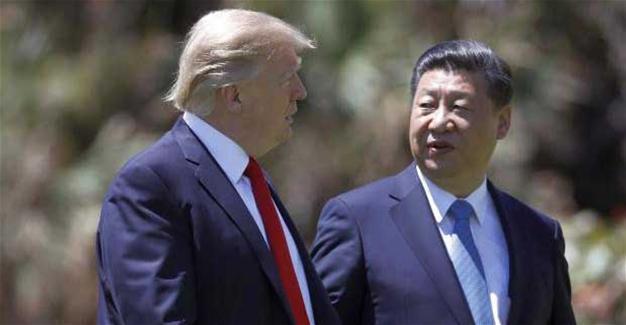US-China ties warm over currency, Syria
WASHINGTON
 The United States and China struck what appeared to be an unusual bargain on April 12 as U.S. President Donald Trump said he would not label China a currency manipulator and voiced confidence Chinese President Xi Jinping will help him deal with North Korea’s mounting threat.
The United States and China struck what appeared to be an unusual bargain on April 12 as U.S. President Donald Trump said he would not label China a currency manipulator and voiced confidence Chinese President Xi Jinping will help him deal with North Korea’s mounting threat.Another result of the diplomatic wrangling: A surprising Chinese abstention on a U.N. resolution condemning a Syrian chemical weapons attack.
China on April 13 said that military force could not resolve tension over North Korea, while an influential Chinese newspaper urged the North to halt its nuclear program in exchange for Chinese protection.
In a newspaper interview and a White House news conference, Trump hailed the rapport he developed with Xi during last week’s Florida summit, which seems to have yielded an immediate easing of tensions related to the U.S.-Chinese trade imbalance and how to prevent Pyongyang from developing a nuclear missile capable of reaching the United States.
“I think he wants to help us with North Korea,” Trump said of Xi, crediting China in the news conference with taking a “big step” by turning back boats of coal that North Korea sells to its northern neighbor. North Korea conducts some 90 percent of its trade with China.
And in one of the sharpest reverses of his presidency, Trump backed off from a campaign pledge by saying he would not declare China to be a currency manipulator, an action that could have led to higher tariffs on Chinese goods. The accusation had formed a basis of Trump’s argument for lost American jobs, on the grounds that an undervaluing currency was boosting Chinese exports and leading to artificially low prices, all at U.S. manufacturers’ expense.
“They’re not currency manipulators,” Trump told The Wall Street Journal earlier on April 12, saying the country hadn’t been cheating on its currency for months. He said a U.S. declaration of Chinese manipulation could jeopardize talks with China on North Korea.
Asked specifically if his decision on currency was part of an agreement over North Korea, Trump responded: “We’re going to see. We’re going to see about that.”
With a U.S. aircraft carrier group, USS Carl Vinson, steaming to the Korean peninsula and tension rising, South Korea said it believed the United States would consult it before any pre-emptive strike against the North.
South Korean Foreign Minister Yun Byung-se told parliament in Seoul he believed Washington would consult Seoul if it was considering a pre-emptive strike. The United States has about 28,500 troops in South Korea.
Fears have been growing that the reclusive North could soon conduct its sixth nuclear test or more missile launches in defiance of U.N. sanctions and stark warnings from the United States that a policy of patience was over.
China, North Korea’s sole major ally and benefactor, which nevertheless opposes its weapons program, has called for talks leading to a peaceful resolution and the denuclearization of the peninsula.
“Military force cannot resolve the issue,” Chinese Foreign Minister Wang Yi told reporters in Beijing.
“Amid challenge there is opportunity. Amid tensions we will also find a kind of opportunity to return to talks.”
An influential state-backed Chinese newspaper said the best option for North Korea and its leader, Kim Jong Un, was to give up its nuclear program, and China would protect it if it did.
“As soon as North Korea complies with China’s declared advice and suspends nuclear activities ... China will actively work to protect the security of a denuclearized North Korean nation and regime,” said an editorial in the Global Times, which is published by the Communist party’s People’s Daily.
Japanese Prime Minister Shinzo Abe underscored fears about threats from North Korea, telling parliament in Tokyo that Pyongyang could have the capacity to deliver missiles equipped with sarin nerve gas.
“There is a possibility that North Korea is already capable of delivering (via missile) a warhead containing sarin,” Abe told a parliamentary diplomacy and defense committee, referring to the poison nerve agent.
















